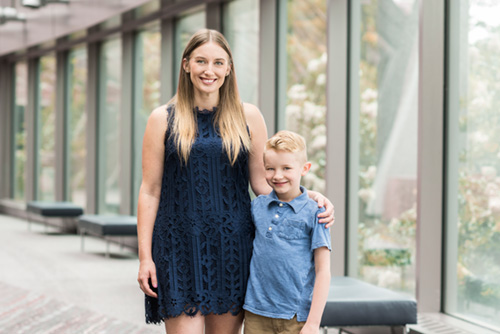Lo que necesita saber
- Los pollos y otras aves de corral vivas pueden ser portadores de bacterias Salmonella.
- Estos microbios se pueden propagar de las aves a sus huevos. Si consume huevos crudos o poco cocidos, puede enfermarse.
- Siempre manipule y cocine los huevos de manera adecuada para prevenir enfermedades.

Los huevos son uno de los alimentos más nutritivos y económicos que nos ofrece la naturaleza, pero pueden enfermarlo si no los manipula y los cocina de manera adecuada. Esto se debe a que los huevos pueden estar contaminados con Salmonella, una bacteria que enferma a las personas.
¿Cómo se contaminan los huevos con Salmonella?
La Salmonella puede contaminar la cáscara de los huevos cuando las aves ponen los huevos o cuando estos están en contacto con excrementos de aves (caca) después de que se ponen. Este no es un problema para los huevos que se venden al por menor (por ejemplo, los huevos que compra en la tienda de comestibles) porque las empresas los lavan antes de que lleguen a las tiendas.
La Salmonella también puede contaminar el contenido del huevo mientras se forma dentro de la gallina antes de que se forme la cáscara. Hoy en día, muchas menos gallinas ponedoras tienen este problema en comparación con la década de 1980 y 1990, así que los huevos son más seguros para consumir. De todas maneras, algunos huevos están contaminados con Salmonella.
¿Cómo puedo reducir la probabilidad de enfermarme por consumir huevos?
- Compre huevos de tiendas y otros proveedores que los mantengan refrigerados.
- Mantenga a sus huevos refrigeradosexternal icon a 40°F (4°C) o más frío, lo cual debería ser la temperatura de un refrigerador en buen funcionamiento.
- Deseche los huevos rotos o sucios.
- Considere usar huevos y productos de huevos pasteurizados*, que están ampliamente disponibles.
- Cocine los huevos hasta que la yema y la clara estén firmes; esto sucede a una temperatura interna de 160°F (71°C) o mayor.
- Use huevos pasteurizados para crear alimentos que contengan huevos crudos o poco cocidos, como la salsa holandesa, los aderezos para ensaladas tipo César y el postre tiramisú.
- Consuma o refrigere rápidamente los huevos y los alimentos que contengan huevos después de cocinarlos. Refigérelos dentro de las 2 horas, o 1 hora si los huevos están expuestos a temperaturas que superan los 90°F (como en el interior de un auto caliente o en un pícnic).
- Use agua y jabón para lavarse las manos y lavar los artículos que estén en contacto con los huevos crudos. Estos artículos incluyen mesones, utensilios, platos y tablas de cortar.
- No pruebe ni consuma masa o mezcla sin hornear hechas con huevos crudos, como la masa de galletas o la mezcla para pasteles.
*El proceso de pasteurización implica calentar los huevos durante un tiempo suficiente y a una temperatura lo suficientemente elevada como para eliminar los microbios que producen enfermedades. Los huevos pasteurizados pasaron por este proceso.
La enfermedad por Salmonella puede ser grave y es más peligrosa para ciertas personas.
La mayoría de las personas que se enferman por Salmonella presentan diarrea, fiebre y cólicos estomacales.
Los síntomas generalmente comienzan entre 6 horas y 6 días después de la infección y duran entre 4 y 7 días. Las personas con diarrea deberían beber más líquidos.
La mayoría de las personas se recuperan sin un tratamiento específico y no deberían tomar antibióticos. Los antibióticos generalmente se usan solo para tratar a las personas que se enfermaron gravemente o están en riesgo de enfermarse gravemente. Raramente, la Salmonella se propaga al torrente sanguíneo y causa una infección que pone la vida en peligro.
Algunos grupos de personas tienen más probabilidades de infectarse y enfermarse gravemente. Estos grupos incluyen a los niños menores de 5 años, los adultos de 65 años o más y las personas con problemas de saludexternal icon o que toman medicamentos que reducen la capacidad del cuerpo para combatir los microbios y las enfermedades (tienen el sistema inmunitario debilitado).
¿Debería llamar al médico?
Llame al médico si tiene:
- Diarrea que no mejora después de 2 días.
- Vómitos que duran más de 2 días.
- Signos de deshidratación, como orinar poco o no orinar, tener sed excesiva, tener la boca muy seca, estar mareado o aturdido, o producir una orina muy oscura.
- Fiebre de más de 102°F (39°C).
- Sangre en las heces (caca).
Llame al médico si su hijo presenta lo siguiente:
- Diarrea que no mejora después de 1 día.
- Vómitos que duran más de
- 12 horas para bebés,
- 1 día para niños menores de 2 años, o
- 2 días para otros niños
- Signos de deshidratación, como no orinar por 3 horas o más, tener la boca o lengua secas o llorar sin lágrimas.
- Fiebre de más de 102°F (39°C).
- Heces con sangre.
Los pollitos y la Salmonella: La historia de Tyler

Tyler y sus padres disfrutan de huevos frescos de sus gallinas domésticas. Pero la familia cambió la forma en la que tratan a sus aves de corral luego de que Tyler se enfermó de Salmonella.

